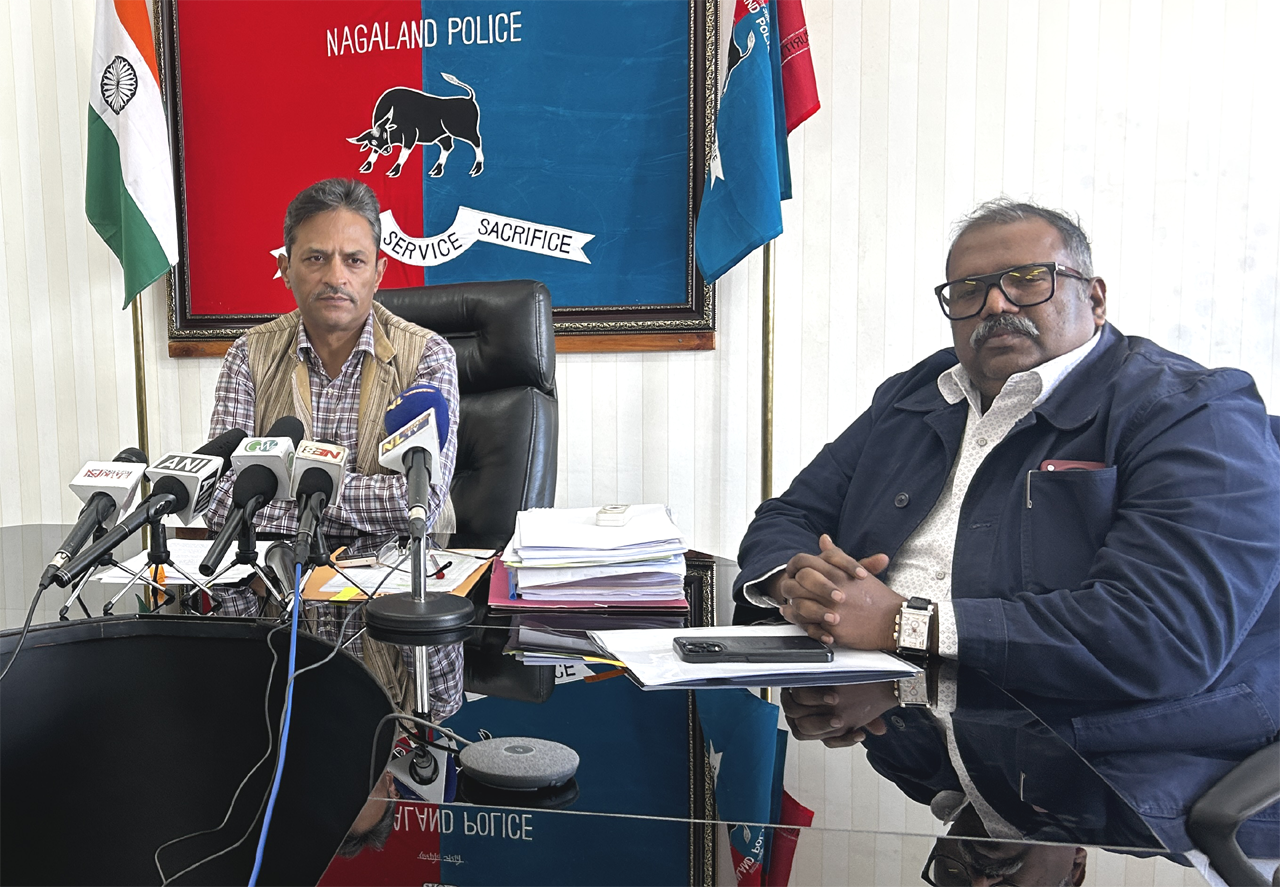With the introduction of new criminal laws requiring forensic teams to visit crime scenes involving serious offences, the Nagaland Police is stepping up efforts to strengthen its forensic capacity.
Speaking to reporters in Kohima, Director General of Police, Rupin Sharma, IPS, said that Nagaland already has a functional forensic laboratory, but the evolving nature of policing and investigation now calls for greater emphasis on scientific support and decentralisation.
He reflected that for decades, Nagaland Police’s structure had been more focused on armed policing than on investigation and district-level forensics. “Our focus on investigation-related work is now emerging,” Sharma said, adding that earlier the state could manage by sending forensic samples to facilities in Guwahati or Imphal.
The new legal requirements, he said, have increased the demand for immediate forensic presence, particularly in cases such as murder investigations. “Currently, our forensic unit is based in Dimapur. If a crime takes place in far-flung areas like Noklak, the team must travel, which delays the process,” he noted.
To overcome this challenge, Sharma revealed that the police will soon propose to the state government a plan to deploy trained forensic personnel in individual districts for faster response. “This will take time to materialise, but we are working on it,” he said.
According to Sharma, Nagaland records about 1,200–1,300 investigation cases each year, nearly half of which fall outside the mandatory forensic visit criteria. He maintained that the existing laboratory in Dimapur remains capable of managing the workload of 600–700 cases annually.
Download Nagaland Tribune app on Google Play

“We are not saying we are fully equipped, but we are decently placed,” he remarked, assuring that the department will continue to expand capacity as the need grows.
Supporting the DGP’s statement, ADGP (Law & Order) Sandeep M Tamgadge, IPS, said that even in larger states, forensic labs are not established in every district. “Our central laboratory in Dimapur is self-sufficient to a large extent,” he said.
Tamgadge announced that the state government has approved the procurement of mobile forensic vans to be stationed across all districts. “The work orders have already been issued, and once these vans are delivered, they will cater to the immediate forensic needs of the districts,” he said.
He further informed that the government is also in the process of creating new posts for scientific officers and assistants to meet the growing forensic requirements.
Sharma added that the real solution lies not in constructing multiple new labs but in enhancing mobility, decentralising manpower, and improving response time. “By making our teams more mobile and resourceful, we can ensure that forensic assistance reaches every corner of the state when needed,” he concluded.

